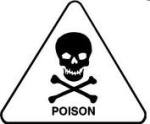High-Fructose Corn Syrup Continues to Be Bad For You Even When It is Called Corn Sugar!
I read another article on high-fructose corn syrup (HFCS) also known as corn sugar.  Some of the things I learned is that when corn syrup is converted into high-fructose corn syrup, it is genetically altered through a chemical process called glucose isomerization. Because this is not a natural process, the body does not react to HFCS like it does to corn syrup. When a natural sugar is consumed, the pancreas releases insulin to get the sugar out of the bloodstream and into the cells to be used as energy. At the same time, the brain receives a signal that the body is full. There are certainly problems with this process when sugar is overconsumed but that’s another topic for another time! When HFCS is consumed, the pancreas does not release insulin so the brain never receives this important signal. This can result in continued overconsumption of the HFCS. Additionally since the body does not recognize HFCS as a natural food source, the liver processes it like a chemical and converts into fat. This is one reason why consumption of HFCS can lead to high triglyceride levels in the blood stream.
Some of the things I learned is that when corn syrup is converted into high-fructose corn syrup, it is genetically altered through a chemical process called glucose isomerization. Because this is not a natural process, the body does not react to HFCS like it does to corn syrup. When a natural sugar is consumed, the pancreas releases insulin to get the sugar out of the bloodstream and into the cells to be used as energy. At the same time, the brain receives a signal that the body is full. There are certainly problems with this process when sugar is overconsumed but that’s another topic for another time! When HFCS is consumed, the pancreas does not release insulin so the brain never receives this important signal. This can result in continued overconsumption of the HFCS. Additionally since the body does not recognize HFCS as a natural food source, the liver processes it like a chemical and converts into fat. This is one reason why consumption of HFCS can lead to high triglyceride levels in the blood stream.
 Other disturbing news about HFCS is that a study recently published by Institute for Agriculture and Trade Policy in Minneapolis determined that in the 55 products it survey that contained HFCS as one of it’s first ingredients, 31% of the food products contained detectable levels of mercury!
Other disturbing news about HFCS is that a study recently published by Institute for Agriculture and Trade Policy in Minneapolis determined that in the 55 products it survey that contained HFCS as one of it’s first ingredients, 31% of the food products contained detectable levels of mercury!
The food industry has created a slick advertising campaign trying to say that HFCS is just like sugar. It is clearly not. Don’t be food. Be vigilant in reading labels. Look for high-fructose corn syrup or corn sugar as ingredients. Teach your children to read labels. Eat a diet based on whole foods such as fresh vegetables, fruits, meats and whole grains. As my favorite food writer Michael Pollan has said, “Don’t eat anything your great-great grandmother wouldn’t recognize as food.”
-
March 11, 2011 at 9:17 amFructose: What Is It? « From the Flight Deck
-
March 14, 2011 at 11:32 pmSugar: It’s Everywhere, and Fructose Is Evil « Alternative Health Answers
-
April 29, 2011 at 1:23 pmHigh Fructose Corn Syrup Scam | Craving Sugar